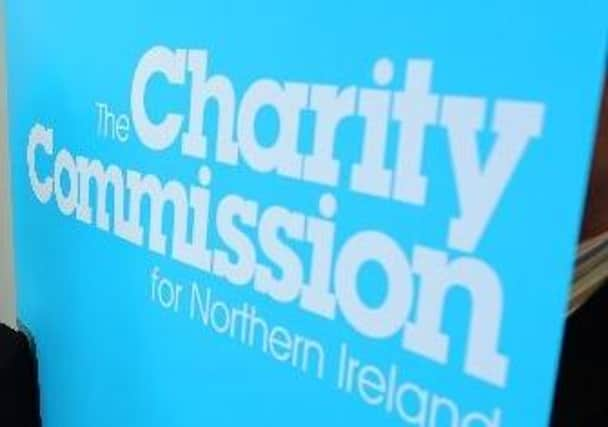Charity Commission ‘must reassure funders’ after failing to register 6000 charities


Seamus McAleavey, chief executive of the Northern Ireland Council for Voluntary Action (NICVA), made the plea after the Charity Commission for NI publicised that if a charity was registered prior to May 2019, it is likely that the decision was void as it was made by a member of staff and not a panel of commissioners.
The Court of Appeal had ruled that the charity commissioners cannot delegate such decision-making functions to staff.
Advertisement
Hide AdAdvertisement
Hide AdMr McAleavey said the news would cause “a lot of confusion”.


He added: “I think a lot of charities will wonder initially has their status been completely changed.”
He did not think this was the case, and he accepted that all 6,000 were still charities “in law” but that they were no longer on the official register.
“But charities have done no wrong and what I expect is that government will now move to fix this problem. It is a problem of their own making in how they drafted the legislation,” he told the BBC.
Advertisement
Hide AdAdvertisement
Hide AdCharities can continue to fundraise, he said, but he did see one potential challenge.
“I think there will be some difficulties in terms of independent charitable trusts who often fund charities, [who] may have a clause that says, ‘we will only fund you if you are a registered charity’.
“I think the Charity Commission, people like ourselves, and others will have to talk to those funders and explain the situation.”
However, a commission spokeswoman said its processes had been agreed by its commissioners. This was based on an interpretation of the law which had been supported by the Department of Social Development, now the Department for Communities (DfC), which had drafted the legislation. The department and the commission both defended the case in the Court of Appeal.
Advertisement
Hide AdAdvertisement
Hide AdThe commission said “a temporary solution” has been implemented to ensure it can continue to work while guidance is sought from the DfC, though it was unable to give a timescale in which it would resolve the issue.
Asked how the situation would disrupt the charities and what they should do about it, the spokeswoman said: “Whether or not an organisation is a charity in law is determined by the wording of their governing document. Registration, which is required by the law, recognises that you are a charity, but does not make you a charity.
“There is no need for charities to take any action regarding their registration at this time and they may continue to operate as previously, without any disruption to their operations.”
The spokeswoman said the commission will be contacting as many charity funders and support bodies as possible in order to clarify the situation and request that this issue be taken into consideration when assessing applications from charities.
Advertisement
Hide AdAdvertisement
Hide AdThe Charity Commission confirmed that the issue ended up in court after a number of regulatory orders and decisions it made against three charities were appealed to the Charity Tribunal.
While the commission won two of the three appeals, all three cases were appealed to the High Court and subsequently to the Court of Appeal.
The commission confirmed that the Attorney General John Larkin joined the proceedings on the side of those appealing the commission’s decisions.
A message from the Editor:
Thank you for reading this story on our website. While I have your attention, I also have an important request to make of you.
Advertisement
Hide AdAdvertisement
Hide AdWith the coronavirus lockdown having a major impact on many of our advertisers - and consequently the revenue we receive - we are more reliant than ever on you taking out a digital subscription.
Subscribe to newsletter.co.uk and enjoy unlimited access to the best Northern Ireland and UK news and information online and on our app. With a digital subscription, you can read more than 5 articles, see fewer ads, enjoy faster load times, and get access to exclusive newsletters and content. Visit https://www.newsletter.co.uk/subscriptions now to sign up.
Our journalism costs money and we rely on advertising, print and digital revenues to help to support them. By supporting us, we are able to support you in providing trusted, fact-checked content for this website.
Alistair Bushe
Editor